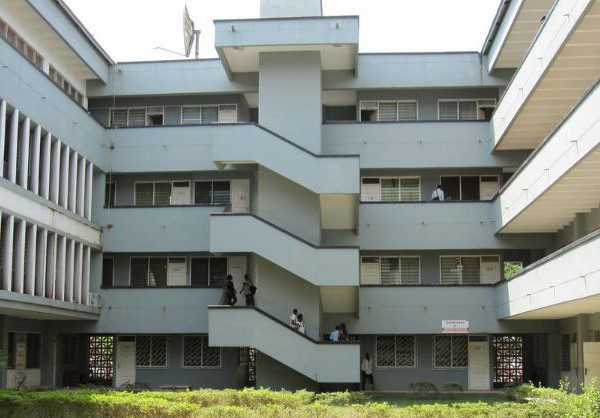

Higher education, also known as third level education is the education provided to people who complete secondary education. The World Bank defines tertiary education to include universities as well as institutions that teach specific capacities of higher learning such as colleges, technical training institutes, community colleges, nursing training schools, research laboratories, centers of excellence and distance learning centers. Higher education therefore embodies undergraduate and postgraduate education.
There are various kinds of schools that provide higher education. These schools include the universities, training colleges, nursing/nursing assistant training schools among others. The fundamental purpose of higher education is to innovate the culture of progress and prosperity through human resource development. In this regard, higher education is to orient people culturally, socially, economically, politically and technologically in a positive direction which consequently leads to social change and national development.
The fundamental purpose of higher education is to innovate the culture of progress and prosperity through human resource development
Challenges in higher in education
Higher education in Ghana and in most West African countries is hindered by a myriad of challenges ranging from funding to faculty. Funding for most state owned tertiary institutions has been inadequate which results in high fees for students. Availability of qualified faculty to effectively handle teaching and learning in most tertiary institutions has also been a challenge. Furthermore, the relevance of training provided or academic programs run in tertiary institutions has been called into question. There has been a long standing complaint of a mismatch of skills between graduates on the one hand and industry needs on the other. Also, the increasing cost of tertiary education prevents brilliant but needy students from accessing higher education. A lack of coordination of research activities among research institutions such as universities is a major challenge. The non-research coordination problem leads to poor appropriation of research outcomes. There are also weak intellectual property (IP) protection systems which hinders serious research efforts.
The way forward
- All mushroom and smaller universities (both public and private) should consider merging to form bigger universities or institutions that can make significant impact in the world of research and in global ranking of higher institutions. Such bigger institutions will have a large pull of faculty to carry out both training of students and research. Bigger universities have the ability to reduce the cost of training per student which will enhance access to higher education.
- Relevance of content is another issue West African higher institutions of learning must consider. Content of training must be relevant to the needs of the emerging knowledge based economies in West Africa and around the world. On this backdrop, Information and Communication Technologies (ICTs) must be integrated into every programme that is taught in our tertiary schools. Graduates of our tertiary institutions should be able to use their knowledge to benefit industries in a significant way. To make the content of training relevant, there should be an effect interaction between universities/tertiary schools, governments and industry/businesses.

There should be the opportunity for students in West Africa to start and complete their higher education in more than one country and university. Such a training will enhance multicultural learning, academic and economic integration of the West African Region
This relationship holds the key to ensuring the relevance of higher education in our modern day knowledge based societies. Industry is the locus of production and needs skillfully trained and research outcomes from universities/ tertiary schools. The universities / tertiary schools are the source of knowledge for technological innovation and skilled labour. The government is to maintain contractual relations and guarantee stable interactions and exchanges. A strong link between these three (3) players will enhance the relevance and productivity of higher education and contributes to the effective and efficient commercialization and appropriation of the productive activities of our human resources and our gathered knowledge.
- Universities and tertiary schools across West Africa should establish a working relationships with sister universities/schools outside their home countries where they can undertake a compulsory student exchange programme especially for postgraduate students. A student studying for a postgraduate degree should not be made to complete his or her studies in just one university and in his home country. There should be the opportunity for students in West Africa to start and complete their higher education in more than one country and university. Such a training will enhance multicultural learning, academic and economic integration of the West African Region.
- Research works in universities/ tertiary schools should be well coordinated. Currently as it stands, there is a huge duplication of research works that do not yield any benefits. With effective coordination, tertiary schools can conduct far-reaching relevant and effective research that can be useful to national development.
- Last but not the least, the need for the effective implementation of Intellectual Property (IP) laws cannot be left out. The activities of knowledge pirates and IP infringers undermine all genuine efforts by people in the academic community.
Source photo : infosdaccra.com
Kassim Alabani is a teacher with the Ghana Education Service and the General Secretary of the Centre for Development and Policy Advocacy. He is a WATHI volunteer.
